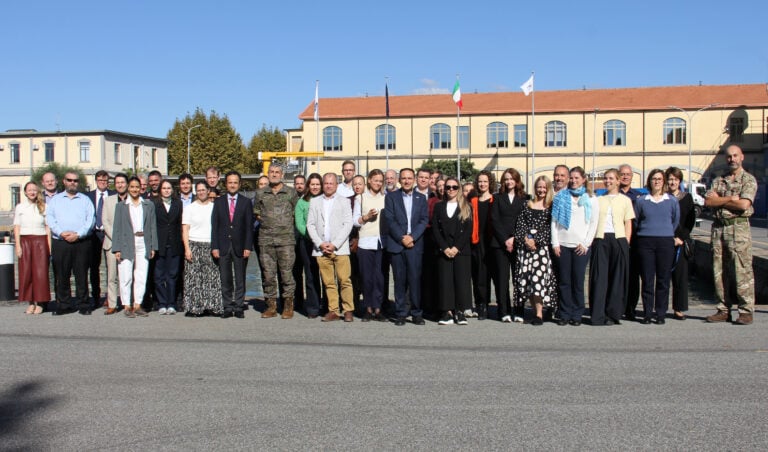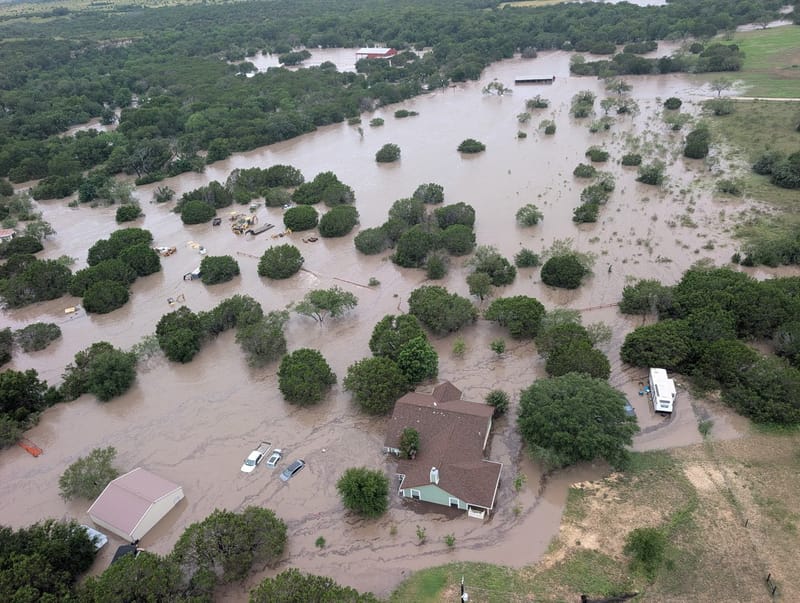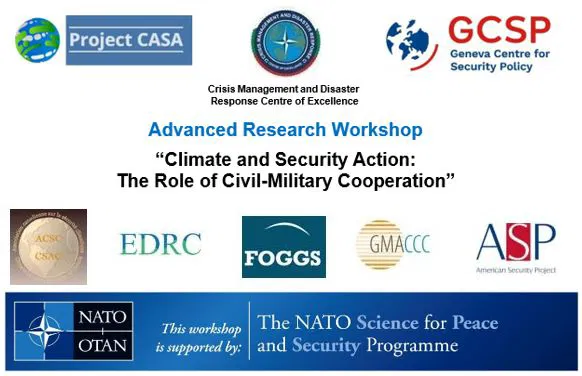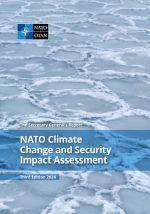Climate and Security Action
Civil-Military Cooperation in Climate-Related Emergencies
QUICK LINKS
CLIMATE AND SECURITY ACTION NEWS
Project CASA members among speakers at the Montréal Climate Security Summit 2025
8-9 October 2025 – Montreal, Canada - The Montréal Climate Security Summit 2025 held on 8-9 October 2025 was characterised as “powerful reminder that climate foresight is now a pillar of defence readiness.” Several GMACCC / Project CASA members were among the speakers.
Project CASA members take part in NATO course on Climate Change and Security
8 October 2025 - La Spezia, Italy - The first edition of the NATO Climate Change and Security course was held from 29 September to 3 October 2025 at the NATO Science and Technology Organization’s (STO) Centre for Maritime Research and Experimentation (CMRE) in La Spezia, Italy. Project CASA Coordinating Group member Dr. Georgios Kostakos, Executive Director, FOGGS made a presentation on Climate Change and National Resilience: Use of military assets to address climate-related civilian emergencies.
Project CASA Report explores the growing demand for military involvement in climate emergencies worldwide
12 September 2025– This report explores the growing demand for military involvement in climate emergencies worldwide. It provides an in-depth analysis of national frameworks, operational strategies, and international coordination mechanisms shaping civil-military cooperation in all aspects adapting to climate change—resilience to climate shocks, readiness to respond, response and recovery.
The OSCE is uniquely positioned to address climate-related security risks
The authours argue that “the foundation is strong as the OSCE has a comprehensive security vision that inherently links environmental, economic, and politico-military dimensions, a clear political mandate from the 2021 Stockholm Ministerial Council Decision and a unique grassroots presence through its 12 field operations". ... However, to translate this potential into sustained impact, they highlight three key opportunities which should be addressed.
Regional Police, Military and Fire Service personnel undergo training ahead of the 2025 Atlantic Hurricane Season
7 April 2025 - "Over 100 military, fire and police personnel from across CDEMA Participating States will be undergoing specialized training as part of the CARICOM Disaster Relief Unit (CDRU), in preparation for the 2025 Atlantic Hurricane Season."
New Frontiers and Tools in Climate Change Adaptation
On 28 March 2025 the 17th meeting of the BDCD focused on climate change adaptation and the role of civil - military cooperation. How prepared are EU, NATO and other countries to address rapidly growing climate risks?
Project CASA featured at Workshop on “Climate and Security Action: The Role of Civil-Military Cooperation”
16-18 July 2024 - The purpose of the workshop in Sofia, Bulgria was to meet the need for relevant and timely advice from defence and security experts, foster the next generation of experts and contribute to officials’ and public understanding of defence and security issues including the climate and security nexus.
NATO releases 2024 Climate Change and Security Impact Assessment Report
9 July 2024 - NATO released the Secretary General’s annual Climate Change and Security Impact Assessment on Tuesday (9 July 2024). It notes that accelerating climate change has “a profound impact on Allied security,” and stresses the need for NATO to remain fit for purpose in a rapidly changing environment.
PROJECT CASA FEATURED AT MONTREAL CONFERENCE ON CLIMATE SECURITY AND ITS CHALLENGES
10 April 2024 - The Second Annual ASCS-CSAC Conference included a panel discussion on Civil Military Cooperation in Climate Related Emergencies.
Artificial Intelligence for Climate Security: Possibilities and Challenges
8 December 2023 - Recent advances in artificial intelligence (AI)—largely based on machine learning—offer possibilities for addressing climate-related security risks. AI can, for example, be used for developing disaster early-warning systems and enhancing long-term climate hazard modelling, reducing the risk that the impacts of climate change will lead to insecurity and conflict.
NATO and the new Climate Change and Security Centre of Excellence
2 November 2023 - At the NATO Summit in Vilnius in July 2023, Allies welcomed the establishment of a NATO Centre of Excellence for Climate Change and Security in Montreal, Canada. Here are excerpts from several articles about NATO’s Approach to Environment, Climate Change and Security, Implementing NATO’s Climate Security Agenda and the new NATO Climate Change and Security Centre of Excellence (CASCOE).
Project CASA at a Glance
The project on Climate and Security Action through Civil-Military Cooperation in Climate-Related Emergencies (Project CASA) studies the extent to which selected countries in NATO and globally have engaged their national militaries in responding to climate-related emergencies.











